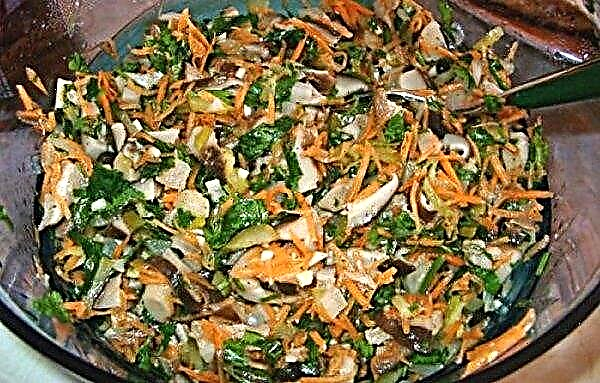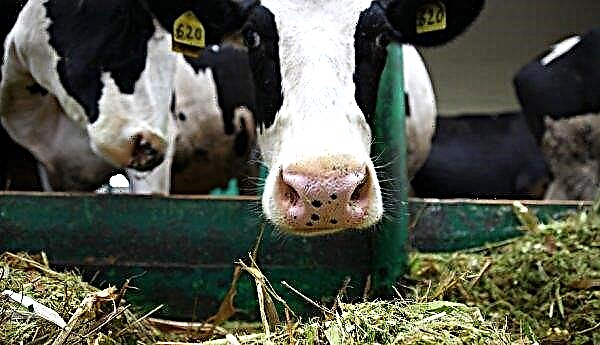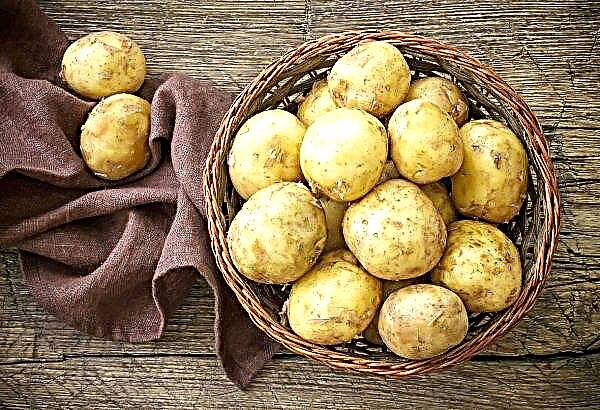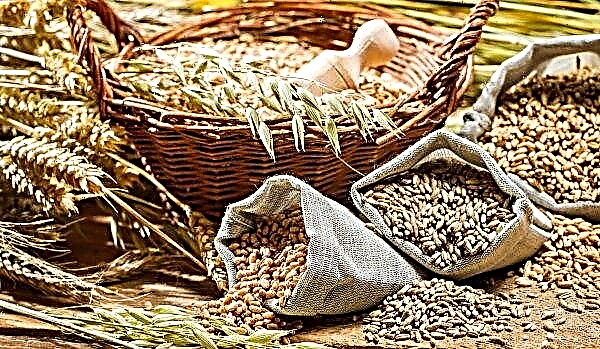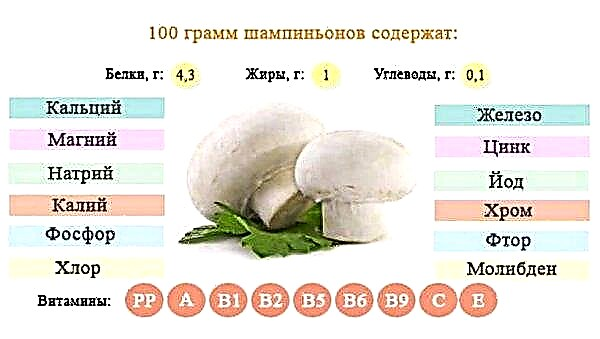In the second half of summer, everywhere, literally on every corner, watermelons or melons are sold, and there is hardly a person who is indifferent to these fragrant fruits. Watermelons are known to be a good diuretic, and melon often causes diarrhea. This article will examine whether it is so, melon weakens the intestines or not, and how to eat this fruit.
Botanical Description
Melons (Cucumis melo) belong to the family Pumpkin (Cucurbitaceae). These are weaving plants with long stems that can, clinging to the antennae on a support, rise to a considerable height. The stems are rounded in section, rough texture with small setae. The length of the stems reaches 4 m. The plant is grown only in warm climates.
Leaves are located on stems opposite to each other, lobed, rounded. The flowers are completely male or female (one-color plants), with yellow petals. The shape of the fruit depends on the variety, and can be round or elongated (ellipsoidal), the mass of the fruit is from 500 g to 10 kg. Externally, the fruits can be smooth, corrugated or segmented, with the pulp of white, yellow, orange or dark green. Inside the fruit are seeds. These delicious sweet and aromatic fruits have medicinal properties.
Did you know? It is very important to harvest melons after reaching full ripeness. After the fetus is removed from the maternal lash, it will stop singing. These fruits are not ripened during storage.
Chemical composition
Melon is 80% water, and the few calories it contains are due to its moderate sugar content. Consumers usually do not know whether the amount of nutrients depends on the color intensity of the melon pulp. But there is an addiction, the brighter the pigmentation, the higher the amount of beta-carotene in the tissues. The beneficial substances in these fruits are vitamin C, potassium, magnesium and calcium. Vitamin C has an antioxidant effect, like beta-carotene, it also contributes to the formation of collagen, the absorption of iron from food, the body's resistance to infections, strengthen bones and teeth, increase the level of red blood cells in the blood.
Beta-carotene in the human body is converted to vitamin A as needed. Vitamin A is essential for vision, good skin, hair, mucous membranes, bones and the proper functioning of the immune system. Potassium is needed to transmit and generate a nerve impulse, normal muscle activity and normalize intracellular water balance. Magnesium is associated with the functioning of the intestines, nerves and muscles, is part of the bones and teeth, improves immunity and has a weak laxative effect.
Nutrition value per 100 g of melon:Important! Melons are an excellent source of provitamin A (beta-carotene), vitamin C and carbohydrates (mainly sucrose). They are one of the richest fruits in terms of sodium (10 mg per 100 g of product).
- calories - 52.4;
- carbohydrates - 13.1 g;
- fiber - 0.8 g;
- potassium - 320 mg;
- magnesium - 11.8 mg;
- calcium - 15.8 mg;
- iron - 0.4 mg;
- provitamin A - 3 mcg;
- Vitamin C - 32 mg;
- folates - 2.7 mcg.
Does melon weaken or strengthen?
Not everyone knows whether melon pulp is a good laxative. Undoubtedly, since this product after eating, not lingering in the stomach, enters the intestines. In addition, it is prone to fermentation. Therefore, it is not recommended to take it on a full stomach, for example, after lunch, since the body does not get the benefit from the foods eaten for lunch, all of them will be euthanized as a result of diarrhea.
Doctors recommend taking melon not as a dessert, but as a fruit snack between main meals. Can a patient in case of constipation do without pills that regulate the activity of the intestines, such as Mezim, and solve the problem by eating 200-300 g of melon slices? Doctors are sure that this is possible.
Did you know? When buying a melon, its ripeness is determined by smell. In a ripe fruit, a sweet aroma characteristic of this culture breaks through the peel.
When and how to use
Melon is consumed fresh, having previously removed the seeds inside. The peel of the fruit is rough and inedible. Also made of pulp: juice, jam, candied fruit, marmalade, confiture. The most useful melons are in the season of natural maturation, which occurs closer to the end of summer.
Also, as preparations for the winter, melon pulp is frozen or dried:
- They take a ripe, aromatic fruit, cut it in half and clear it of seeds and seed fiber.
- Peel and cut into small slices, not thicker than 3 cm (for freezing) and 1 cm (for drying).
- Slices are sent to freezing, having previously been laid out in hermetically sealed containers or plastic spare parts. Fruit freeze does not lose validity for 3 months.
- To prepare melon drying, slices are placed in an electric dryer (dehydrator), you can also dry them in an oven at low temperature. Ready-made drying is stored in cotton bags or tight-fitting jars. With proper storage, melon drying does not lose shelf life for several years.

It is these characteristics that allow doctors to recommend melon as a non-medication for constipation. This fruit is especially useful during pregnancy. Constipation is one of the disorders of pregnancy (in the first trimester), since in pregnant women the digestion process is slower than usual. Melon has a fairly large amount of fiber, which relaxes the stool.
Important! Melon fiber helps the body absorb incoming substances and cleanse the intestines.
Contraindications to the use of melon
Having such tasty healthy fruits, melon also has contraindications:
- Despite the low calorie content, these fruits are not recommended for patients with diabetes - as they contain sugar and carbohydrates, which increase blood sugar levels.
- It is forbidden to use for people who have a stomach ulcer or intestinal tract.
- You can not combine melon with alcohol, sour milk or yogurt, cold water, since it almost instantly acts as a laxative.
- It is undesirable to eat this fruit as a dessert, immediately after a hearty meal.
- In order not to harm health, it is advisable to eat this fruit in the intervals between meals during the day.
- Melon flesh is undesirable to include in the menu of nursing mothers, as this can cause diarrhea in the infant.




